Sustainable Process Improvements Make for Leaner, Greener Operations at NWP Plants
In celebration of Earth Day, we are proud to highlight the ongoing environmental initiatives that are making our operations more sustainable. Our commitment to health, safety, and the environment is echoed throughout all levels of our organization and incorporated into every phase of our manufacturing processes. Driven by a culture of continuous improvement, we’ve been integrating ‘green’ upgrades at our facilities to minimize our environmental footprint. Let’s look at some of the eco-friendly lean projects we’ve implemented over the past year.
Reducing Waste
At our Geneva Pipe and Precast plant in Orem, Utah, we’ve enhanced our recycling efforts by investing in two state-of-the-art Styrofoam compactors. Styrofoam is used to create the custom forms for our lined and unlined pre-channeled manhole bases. The production process for FRP base liners begins by shaping Styrofoam blocks with a robotic cutting machine which generates Styrofoam particulate as a byproduct. This process is performed in a contained environment to prevent particulate release. However, the Styrofoam byproduct cannot be reused in our processes.
To minimize waste, we now feed the particulate into the compactor machine which compresses it into recyclable blocks. Our second compactor is specially designed to reduce the larger chunks of Styrofoam left over from the manufacturing of unlined manhole bases, which previously made up the largest volume of landfill waste produced at our facility. Implementing the compactor technology has effectively minimized waste volume from these processes by an estimated 70%. In addition to converting waste into recyclable materials, the compactors are saving the plant an average of $5,140 per month in waste disposal service fees.
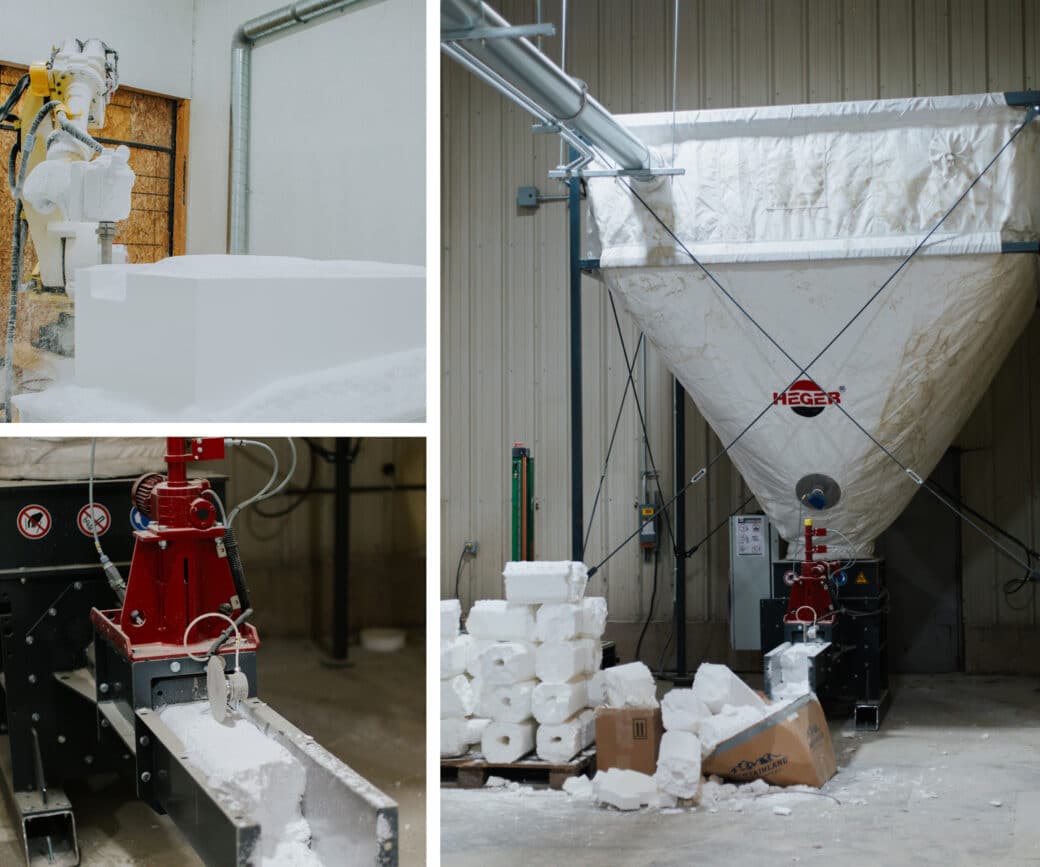
In North Texas, we recently invested in a new 40-yard trash compactor at our ParkUSA Ferris plant, substantially reducing the volume of waste ending up in landfills. The project required electrical upgrades and the pouring of a concrete slab to hold the new compactor. Previously, waste was collected for disposal twice weekly using standard dumpsters. Now, collection is only required every three months. In addition to making a significant dent in waste volume, the compactor has resulted in disposal cost savings of nearly $6,000 per year.
Improving Air Quality
Our ParkUSA Ferris team is clearing the air and improving environmental safety with their recently completed dust abatement project. The team replaced the dust collector on its fly ash silo, upgrading to a more efficient system that exceeds local air permitting standards. The new collector is equipped with 14 cartridge filters and a 3HP suction motor system with a Filcontrol jet pulse to circulate the filters while the fly ash is being blown off into the silo. This upgrade effectively eliminates emissions of fly ash dust into the atmosphere, helping to improve the air quality in and around the facility. The plant has also installed high-level warning systems on the fly ash and cement silos, which notify delivery drivers when they near the silo fill limit, reducing the risk of over-pressurization and unintentional emissions release.
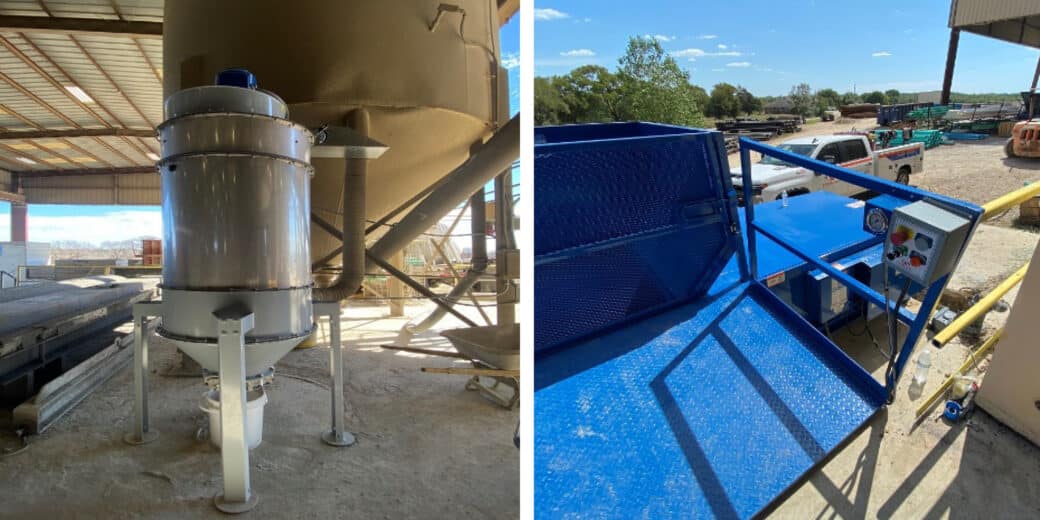
Boosting Energy Efficiency
Several of our manufacturing facilities are taking a bright step towards energy efficiency. At our steel pressure pipe plant in San Luis Río Colorado, Mexico, we upgraded the fluorescent overhead lamps in our concrete cylinder pipe production area to energy-efficient, outdoor-rated LED lamps. This improvement not only improves lighting for our team members but also cuts energy consumption from overhead lighting by over 50%.
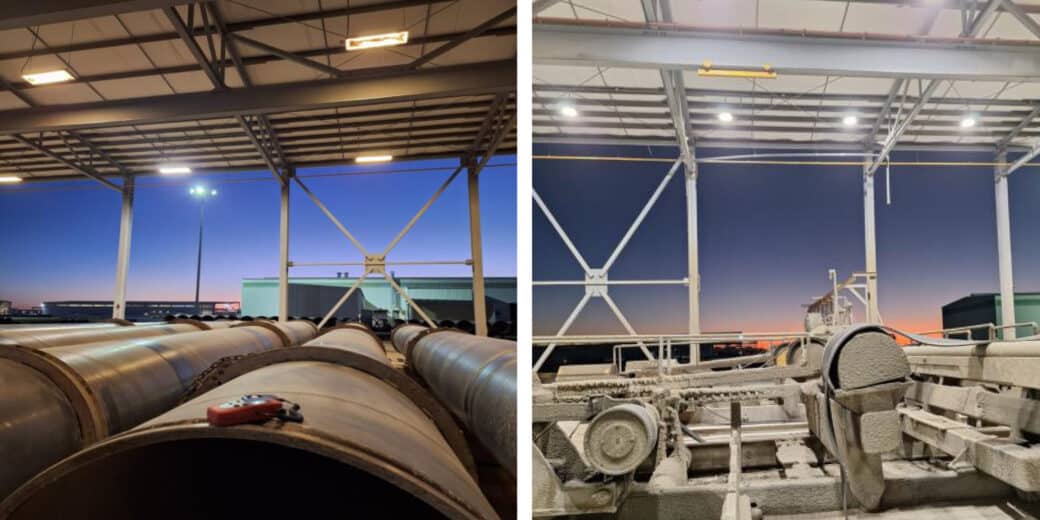
The ParkUSA Ferris facility has also begun replacing lighting around the plant with LED lamps, starting with the office and shipping/receiving buildings. The change has resulted in a 55% decrease in energy usage, and the lamps are expected to last five years. The facility plans a phased continuation of the project through the production areas in the near future.
While much of the Portland plant upgraded their lighting as part of an energy consumption audit in 2021, the sand blast booth was still operating with overhead fluorescent lighting. These fixtures have now been replaced with LEDs, which are expected to provide 15,000 hours of utilization.
Reducing Water Consumption
Water conservation is crucial, especially in arid regions like southern Utah. Last year, we replaced the concrete batch plant at our Geneva plant in St. George with new, state-of-the-art equipment that has reduced water usage by 50%. This capital investment project has reaped several additional advantages including shorter batch times, better scalability, and minimized waste. Next up, we will be paving the main travel areas throughout the plant, converting them from dirt to asphalt surfaces. This improvement will limit the use of water required for dust control in and around the facility.
These upgrades follow another water-reduction project at our Salt Lake facility that saw the replacement of a grass lawn adjacent to the parking lot with drought-tolerant plants and gravel. The implementation of a xeriscaping solution eliminates the need for watering to upkeep the space during the driest months.
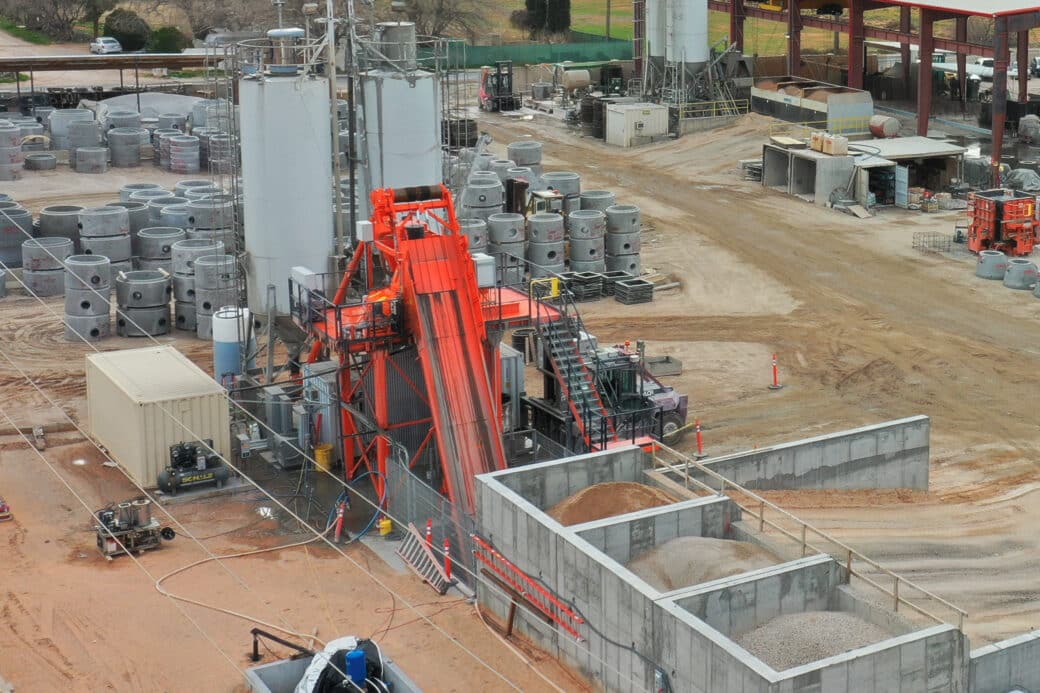
Shaping a Sustainable Future
We’re proud of the progress we have made recently, and we remain committed to taking further strides towards a more sustainable future. Our goals for 2024 include implementing additional measures to safeguard waterways and air quality by enhancing stormwater retention, treatment, and flood control at our facilities, as well as conducting regular visible emissions observations.
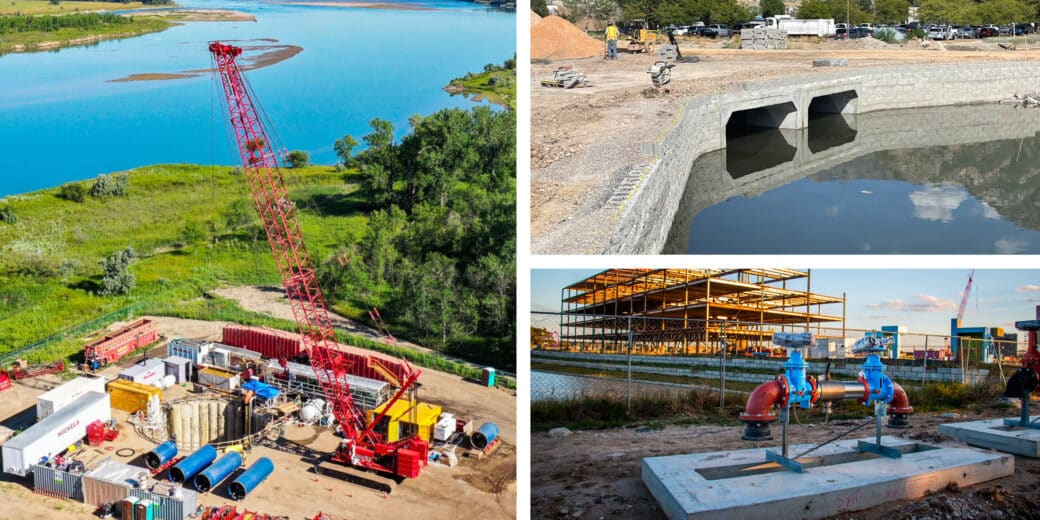
At Northwest Pipe Company, our mission of providing sustainable water infrastructure solutions begins with the processes and materials we use in the manufacturing process. We prioritize minimizing our environmental impact by utilizing recycled materials and incorporating lean practices to reduce waste wherever possible. Our focus on lean and green initiatives goes hand in hand with our commitment to sustainability, which is vital to the health and safety of our employees, the communities we serve, and the ecosystems in which we operate.
Learn more about our ongoing environmental and energy transition efforts on our ESG page.


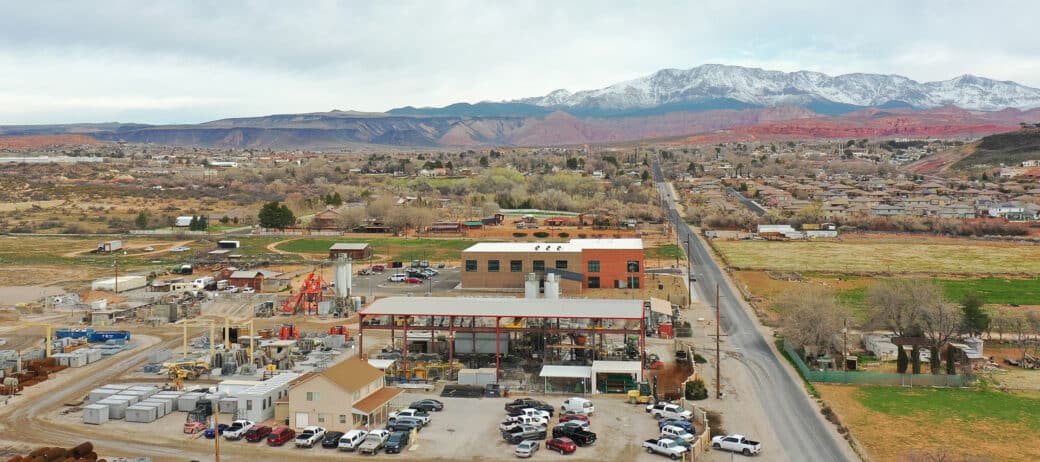 >
>